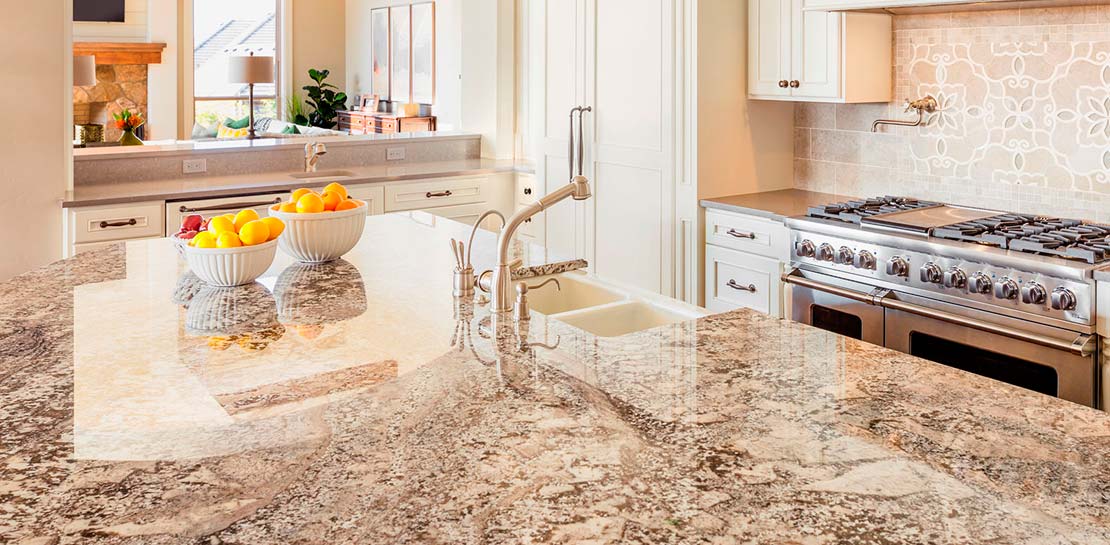
Why Does My Granite Change Color When Wet?
If you just had granite countertops installed, or you’ve moved into a new home with existing countertops, you might notice that your granite changes color when it gets wet. All stones are different, and some are more likely to darken upon contact with liquids than others. Here’s a breakdown of what that color change means, and what you should do about it.
Why Does It Happen?
Even if your granite seems extremely smooth to the touch, it is a natural substance, and on a microscopic level it is uneven and full of holes. The porous surface of stone allows water to cling to it and absorb, darkening the appearance.
Usually, liquids that have been spilled on your countertop will evaporate within half an hour, so even if you have very porous granite, spilling something like water or oil isn’t going to permanently damage your counter. If you’ve spilled a colored liquid, like soy sauce, wine, or coffee, and allow it to sit for over twenty minutes on the stone, you run the risk of staining it. To prevent staining, you need to seal your granite.
How do I know if I Need to Seal?
There’s an easy way to determine if you need to seal your granite. You can always look up the “absorption rating” of your stone if you know its kind and origin—stones with less than .25% absorption don’t usually need to be sealed. But what’s called “the spill test” is usually an even better way of determining this—you just pour a little water on a test piece of granite and see if it changes color.
The more quickly and more dramatically it changes, and the longer it takes to evaporate, the more porous it is. Some granites won’t change color at all, and these do not need any sealant. In fact, if the surface of the stone is so smooth that it won’t absorb water, it won’t absorb any sealant, either, and applying it when unnecessary could make your granite look cloudy.
How Often Do I Need to Seal?
Many installers and remodelers will tell you to re-seal every year, but this isn’t a hard and fast rule. Some granites can go longer without re-sealing, and some might need to be resealed every three months! The best rule of thumb is to just reseal when your countertop begins to darken when wet.
If you have hard water in your household with high mineral deposits, especially iron, it’s a good idea to seal your countertops more often because the minerals in your tap water could react with the stone and change its color permanently. It’s also generally true that the lighter your stone, the more often you might need to seal, because light-colored granite not only shows water better but stains more easily.
If you have any questions about what kind of granite you have, how to best care for it, or what sealants you should choose, call us at Granite & Marble Specialties! We’re happy to help guide you through the needs of your countertops.
